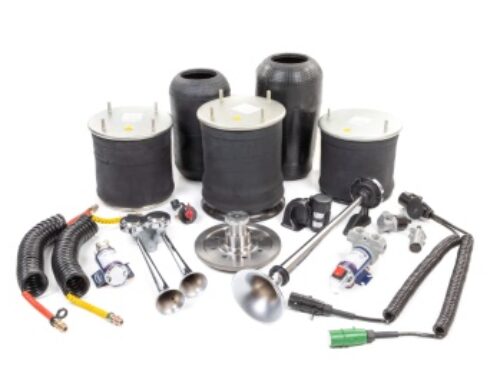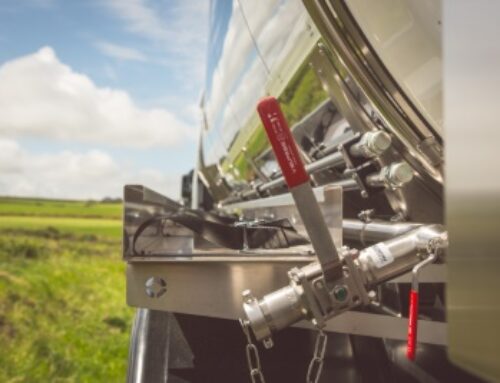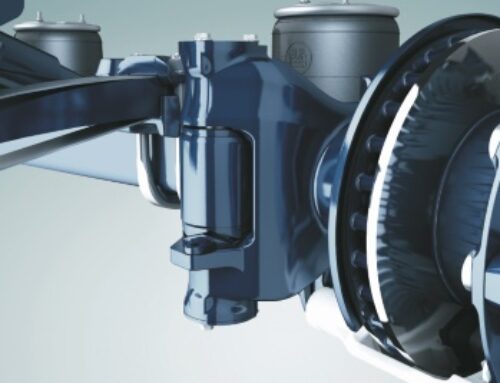Automating vehicle inspection with UVeye
 Inspection technology provider UVeye has explained how its automated vehicle inspection systems can assist in applications as diverse as fleet maintenance and border security.
Inspection technology provider UVeye has explained how its automated vehicle inspection systems can assist in applications as diverse as fleet maintenance and border security.
The company develops and provides automated inspection systems powered by artificial intelligence and proprietary hardware, suitable for scanning vehicles of all types.
“Besides car dealership groups and auction houses, our systems are also suited for being used for major fleets,” noted Amir Hever, UVeye’s co-founder and CEO.
“Our deep-learning technology identifies even the smallest exterior defects or problems within seconds and can significantly improve the maintenance process of large vehicles.”
UVeye says its fast and intuitive scanning devices enable time and cost advantages for fleet operators, by eliminating bottlenecks in the maintenance process.
 “The challenge for fleet managers is to inspect their fleet on a regular basis without increasing off-road time,” Hever continued.
“The challenge for fleet managers is to inspect their fleet on a regular basis without increasing off-road time,” Hever continued.
“Inspections of hard-to-check areas like the undercarriage have traditionally meant taking a vehicle out of service, which automatically impacts daily operations and revenue.”
UVeye’s undercarriage mechanical-issue and tyre inspection systems can be installed at commonly used areas such as parking lots or driveways, which enables an automatic inspection of fleet vehicles at least twice a day.
Due to UVeye’s machine-learning and artificial-intelligence technologies, the inspection systems automatically notify the fleet manager if anomalies are detected.
The benefits of monitoring tread depths of tyres and providing high resolution images of the underbody components are underlined in UVeye’s work with a major bus fleet provider.
“Our case study shows that regular checking of bus tyres and underbodies with our technology leads to great cost benefits,” said Amir Hever.
“Not only did the use of our products lead to fuel savings of three per cent per year, but also saved fleet managers $240,000 in potential engine damage costs.”
UVeye systems are currently used by Kavim, an Israeli bus company with more than 300 vehicles and an annual ridership of nearly 90 million people.
Besides use by fleet providers, UVeye’s technology can also be installed to combat security threats and smuggling at border crossings.
 The company’s undercarriage threat-detection systems can scan vehicles travelling up to 18 miles per hour (30 km/h), helping to improve traffic flow at check points and border crossings even under extreme weather conditions.
The company’s undercarriage threat-detection systems can scan vehicles travelling up to 18 miles per hour (30 km/h), helping to improve traffic flow at check points and border crossings even under extreme weather conditions.
UVeye’s use of proprietary algorithms, cloud architecture, sensor fusion, artificial intelligence and machine-learning technologies allows its products to instantly check and analyse vehicle chassis components, suspension systems, sheet metal and underbody component problems.
This permits instant identification of bombs, weapons, drugs and other potential security threats concealed in the undercarriage, says the company.
In the security sector, UVeye’s inspection systems are installed at hundreds of high-security locations throughout the world, the firm adds, and have already scanned millions of vehicles.
UVeye’s product portfolio includes Helios, an underbody scanning system that captures problems such as frame damage and fluid leaks, as well as brake and exhaust system issues. Helios can also detect illicit materials and threats such as IED bombs and smuggling of goods attached to the undercarriage.
Meanwhile, Artemis is a camera-based system that automatically verifies tyre specifications and checks tyre wear and quality, including tyre pressure, tread wear and sidewall flaws.
Both detection systems can resist harsh weather conditions including rain, high humidity, hail and snow, and are also available as mobile versions.
The company has recently expanded its activity in the United States and has many projects ongoing throughout Europe and the rest of the world, including the recent installation of UVeye technology at Volvo in Sweden.
“We currently have several major automotive- and security-industry pilot programs underway in North America,” Hever added.
“Combined with development projects underway in Japan and Europe, we expect those programs will lead to a significant amount of new business over the next 12-24 months.”











